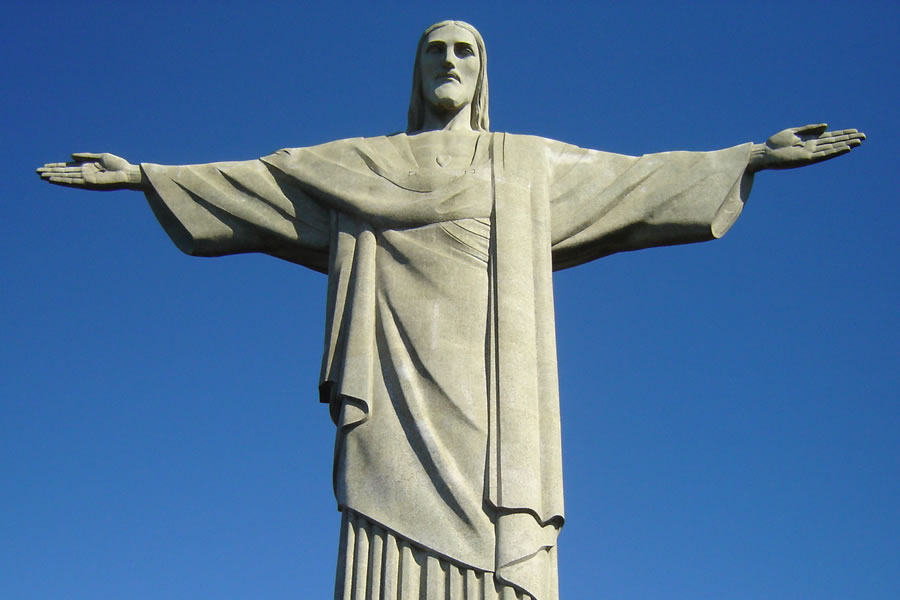
You Shall Love Your Neighbor As Yourself
10-29-2023Weekly ReflectionFr. Manasseh Iorchir, VCSome of us may have experienced how parents, especially mothers, instinctively give more care and attention to any of their children who is impaired, has a disability or is younger than their siblings. The parents tend to “understand” with a disabled child and are more likely to overlook their “transgressions” and to address an “off ense” against them by their siblings. Since we were made in the image of God, it is safe to say that parents, who in their vocation collaborate with God in His benevolent ordering of this world, derive this natural bias towards the disadvantaged from God who is Love itself. God loves us all, but the disadvantaged among us are particular objects of God’s compassion and love. To ensure that they are cared and provided for, God made a Law of Love to protect them from the greed of others. This is the central theme of the Reading of the Liturgy this weekend, that God is love and His greatest commandment is the Law of Love.
READ MORE
Pay to Caesar What Belongs to Caesar And To God What Belongs To God
10-22-2023Weekly ReflectionFr. Manasseh Iorchir, VCThe Readings this weekend are concerned with the right relationship that a Christian believer is expected to maintain between human authority and God. Holy Scripture affirms that despite appearances to the contrary, ultimate control of human history and well-being resides in God’s hands. Human rulers have their place and should be given their just due, but even they are ultimately instruments by which God guides human affairs. So, in the midst of human politics, believers should strive not to be distracted from righteousness, which is the right relationship with God.
READ MORE
On This Mountain, The Lord of Hosts Will Provide For All People
10-15-2023Weekly ReflectionFr. Manasseh Iorchir, VCMount Zion, the mountain on which the Temple was built, was regarded as the holiest site for all adherents of Judaism. It was the political and religious center of Israel and only confirmed beneficiaries of the Old Covenant could claim exclusive rights to her. In Isaiah’s previous oracles (Isaiah 24 and the first few verses of 25), Israel is informed that she has lost favor with the Lord and reminded that she would be restored to favor if she would repent and reconcile with the Lord. In the First Reading, God designates this same mountain as the setting for Universal Redemption. God metaphorically referred to the event as a feast where rich food and choice wine would be served, the place where the veil of ignorance and death woven over all peoples would be destroyed, and the Lord would wipe away the tears from every face. In summary, Jerusalem will be the holy site for the redemption of people from all nations, not just the beneficiaries of the Old Covenant, and for the establishment of the new and everlasting Covenant that will admit all people who are willing, Jews and Gentiles alike.
READ MORE
The Kingdom of God Will Be Taken Away From You and Given to a People That Will Produce its Fruits
10-08-2023Weekly ReflectionFr. Manasseh Iorchir, VCThis weekend, the First Reading and the Gospel provide two parables that describe the covenant relationship between God and the People of Israel. These parables provide a historical explanation for God’s dissatisfaction with the People of Israel that ultimately gave rise to the formation of the “New Israel” (The Church), an expansion of the national relationship God had with Israel to a universal relationship that includes all people who believe.
READ MORE
Have In You The Same Attitude That Is Also In Christ Jesus
10-01-2023Weekly ReflectionFr. Manasseh Iorchir, VCThe Readings last weekend demonstrated how “God’s thoughts are not our thoughts and His ways are not our ways” with the parable of the vineyard owner who paid a flat wage to all his workers despite hiring them at different times. This must have raised in our minds a question about the “fairness” of God who rewards equally all who respond to His invitation to labor in His vineyard. The Readings of this weekend’s liturgy are intended to facilitate further reflection upon the “justice” of God.
READ MORE